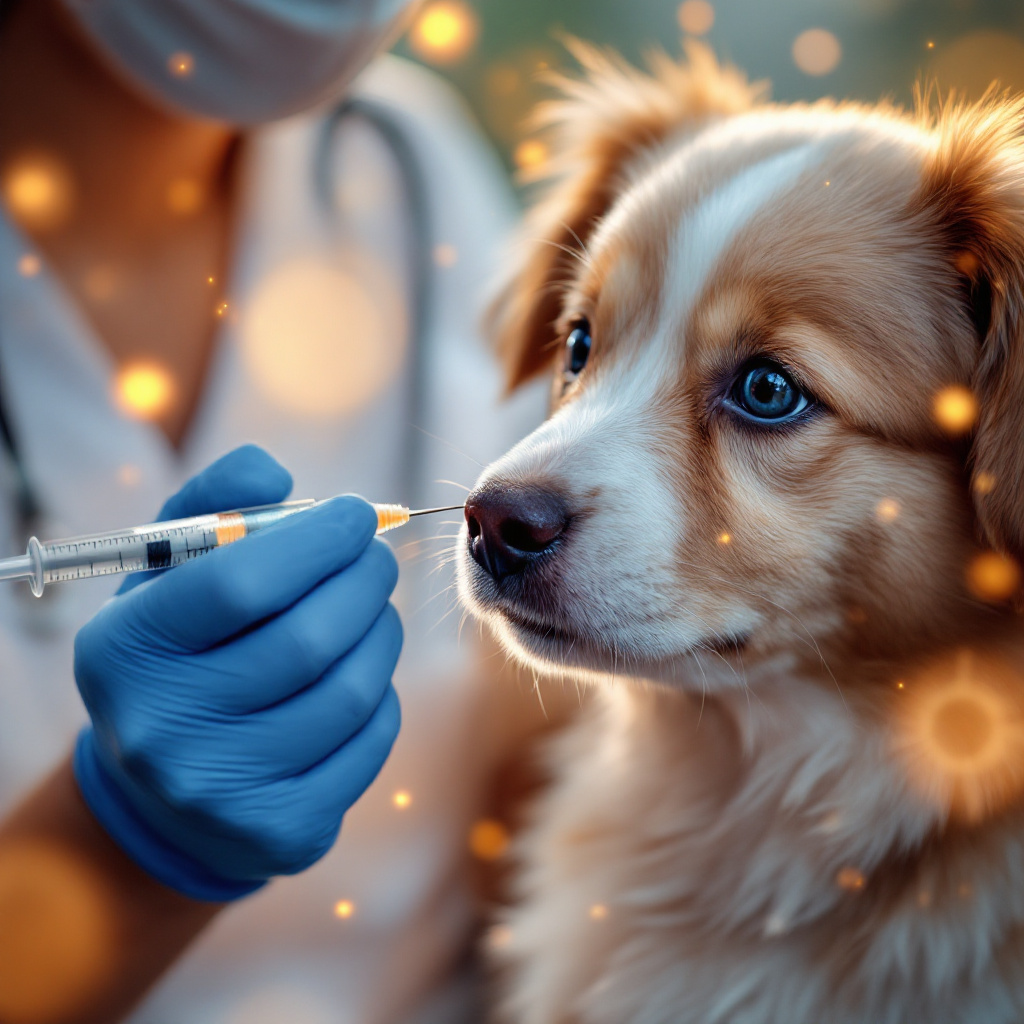Vaccinations and immunotherapy: new horizons for the health of our pets
Pet owners know that the health of their four-legged friends is a priority. Whilst many of us are familiar with the idea of having our furry companions regularly vaccinated, there are constant advances in medical research that are opening up new possibilities. The field of immunotherapy is particularly exciting and is becoming increasingly important. In this blog post, we take a deep dive into the fascinating world of pet vaccinations and immunotherapy and how these advances can help ensure the wellbeing of our animal family members.
Why vaccinations and immunotherapy are so important for pets
Vaccinations have always played a key role in protecting against Infectious diseases that threaten both animals and humans. But why are they so crucial? Quite simply, they train the immune system to react to pathogens at an early stage before they can cause serious damage.
- Protection against life-threatening diseases
- Reduction of the risk of infection among animals
- Long-term cost savings through prevention
Vaccinations are therefore not only a medical necessity, they are also an investment in your pet's healthy future.
The immunotherapy revolution
Immunotherapy is now not only a trend in human medicine, but is also being used more and more in pets. But what exactly does this mean? Unlike conventional vaccinations, which have a preventative effect, immunotherapy focusses on treating and supporting the immune system in the event of illness.
Thanks to new research findings, we can understand how the immune system can be activated in a targeted manner to fight tumours or chronic infections more effectively, for example. Sounds like science fiction? Not at all!
Latest developments in research
What exciting discoveries are currently being made in the field of immunotherapy? Well, in recent years, scientists have developed a variety of guidelines and protocols that have the potential to change the way we approach disease prevention and treatment in animals.
- Gene therapy: A method that intervenes directly in the animal's DNA to regulate congenital immune disorders.
- Monoclonal antibodies: These are developed to specifically attack disease-causing cells.
- Individual vaccines: Customised vaccines tailored to the genetic disposition of an individual animal.
The possibilities are enormous, suggesting that we are only scratching the surface of what could soon be commonplace.
Practical tips for pet owners
Now that we know the theory, the question is: What can I do for my pet? Here are a few practical tips:
- Regular visits to the vet: Seek advice from your vet and plan your pet's vaccination schedule together.
- Reliable sources: Stay informed about the latest developments by consulting scientific journals and trustworthy websites.
- Healthy diet: A strong immune system always starts with the right diet. Ensure a balanced diet and avoid over-the-counter food supplements without consulting your vet.
These measures are in line with a preventative approach to health maintenance and ensure long-lasting, happy pets.
Concluding thoughts
One thing is clear: developments in the field of medical research for pets are both rapid and exciting. Vaccinations and immunotherapy offer a treasure trove of opportunities to take your pets' health to a whole new level. Stay on the ball, stay informed and work closely with your vet to achieve the best for your furry companions.
In a world where knowledge is power, it's up to you to make proactive decisions to positively influence the longevity and quality of life of your pets. After all, they deserve the best that science has to offer.
FAQs
Which vaccinations should pets receive regularly?
Standard vaccinations for pets include those against rabies, distemper and parvovirus in dogs and cat flu and feline enteritis in cats. Your vet can advise you on which vaccinations are essential for your pet.
Can vaccinations have side effects in pets?
As in humans, pets may occasionally experience mild side effects, such as swelling at the injection site or fatigue. Serious reactions are rare, but should be investigated immediately by a vet if suspected.
How long does vaccination protection last in pets?
The duration of vaccination protection varies depending on the type of vaccination. Some require annual boosters, while others, such as the rabies vaccination, must be renewed every three years, depending on local law. Regular visits to the vet will help determine the optimal vaccination schedule.
What are common concerns with pet immunotherapy?
One of the main concerns is how the immune system can be specifically stimulated without causing an overreaction that could attack healthy cells. Careful monitoring and adjustment by veterinarians are essential to minimise such risks.
Which pets are suitable for immunotherapy?
Not all pets are suitable candidates for immunotherapy. Most commonly, this method is considered for animals with cancer diagnoses. Your veterinarian can perform a comprehensive evaluation to determine if immunotherapy is appropriate in your pet's individual case.
Author
-

David is a passionate aquarist with more than 20 years of experience in setting up and maintaining freshwater and saltwater aquariums. He specialises in the biodiversity of aquatic ecosystems, aquascaping and the species-appropriate keeping of aquarium fish. His articles on haustierewissen.de are a treasure trove for aquarium enthusiasts looking for sound advice and creative ideas for their underwater worlds.
View all posts




